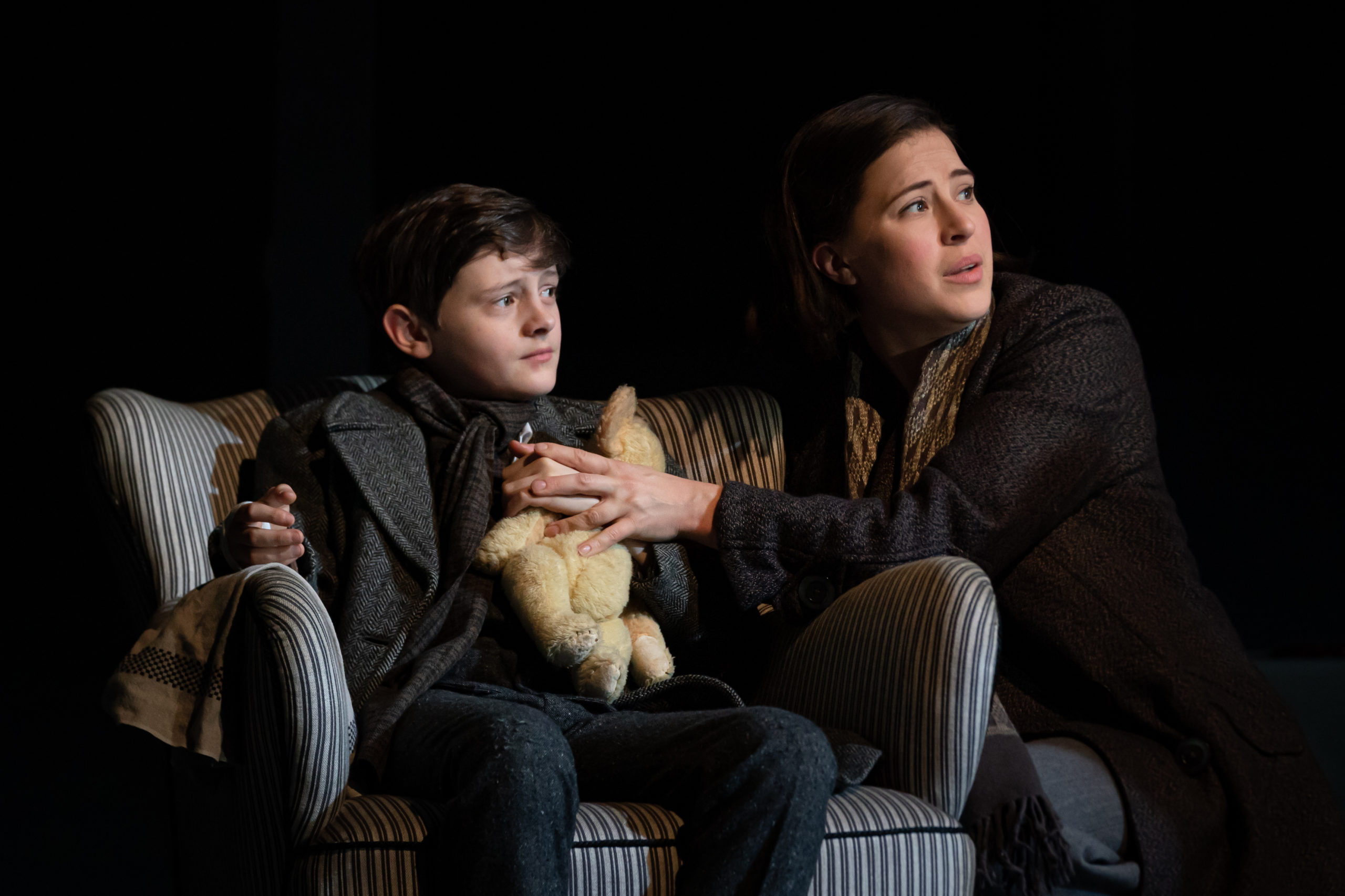
In January, I went to Amsterdam to watch the latest play from Milo Rau, one of the most provocative directors in Europe. In Familie, he restaged the final night in the lives of the Demeester family, who were all found hanged in their kitchen in Calais, with a note which said: “We messed up”. The play was deliberately slow, and took much of its force from Rau’s decision to cast a real-life family in the production. Biography bled into fiction, the boundary between the real world and the theatre dissolved. The result was stunning.
There is no separating the artist and the art in Tom Stoppard’s new play Leopoldstadt, either. The 82-year-old says it could be his final work, and he has drawn directly on his own life as a refugee from Nazism for its plot. Like his character Leonard Chamberlain, the young Tomáš Straussler arrived in England as a child, where he shed his Jewish name and much of his old identity. The gift this country gave Tom Stoppard was that his ethnicity did not define him.
Tomáš Straussler’s lucky escape was rare, of course. From the moment that Leopoldstadt opens, on a bustling drawing room full of Austrian Jews incongruously celebrating Christmas, you can guess what its final image will be: the few survivors, half a century later, moving among the ghosts. The play jumps through the twentieth century: Christmas in 1900, Passover in 1905, a circumcision in 1924, the whole family huddled together in 1938, and the pitiful remains of it in 1955. To show this epic sweep requires an enormous cast. No playwright less celebrated than Stoppard could have got this behemoth made; no producer less secure than Sonia Friedman, reigning queen of the West End, would have financed it.
Inevitably, that size and scope requires the script to do rather a lot of heavy lifting; I found myself consulting the programme to keep track of all the aunts, cousins and sister-in-law’s sister-in-laws. Stoppard also indulges himself with speeches on topics such as Emperor Joseph’s edict of tolerance, plus clanging references to remind you this is Vienna. (No one in this family makes small talk when they could be discussing an odd doctor’s theory of dreams, or the merits of this guy Herzl’s scheme for a Jewish state in Palestine.) Being Stoppard, one of the characters is obsessed with number theory.
Wrangling something this vast requires great skill from the director Patrick Marber, who is himself an accomplished playwright. Scene changes are assisted by projections on the curtain: unfortunately, these feel like a wasted opportunity. (The images will be familiar to anyone who has flicked past the History Channel, and part of the challenge of retelling this well-told story is rendering it fresh and shocking again.) The pace, though, is beautifully controlled, and even the very talky scenes never drag.
There is some overly heavy underscoring of the play’s theme early on, as Hermann Merz insists that, having converted to Christianity, he is now accepted by Viennese high society as one of their own. This is told, at length, as well as shown. Merz’s disillusionment drives the first half of the play, as he discovers that no baptism, and no amount of money, can wash away his Judaism. It is an excellent performance by Adrian Scarborough, moving from bluster to crushed acceptance to quiet integrity.
The most extraordinary character in the play, though, is one with the least stage time. In 1938, the young Leopold Rosenbaum is so scared by a visiting Nazi officer that he drops a cup and cuts his hand on the fragments. One of his relatives, a Gentile doctor who refuses to abandon his Jewish wife, sews it up. This incident comes directly from Stoppard’s life: when he researched his family tree, he found an elderly woman in Czechoslovakia whose stitched hand was evidence of his father’s career as a doctor. “I have nothing that came from my father,” Stoppard wrote later, “nothing he owned or touched, but here is his trace, a small scar”.
By 1955, Leopold Rosenbaum is an adult Englishman, Leonard Chamberlain, having taken his stepfather’s surname, just as Tomáš Straussler did. In a short speech, he recounts his life, and all the things he loves about England, concluding with the fact he won a university blue in cricket. “Oh,” he adds. “And I forgot Shakespeare.” The audience around me tittered nervously. Leo’s cousin Nathan, who survived Auschwitz, can’t bear it: “You live as if without history, as if you throw no shadow behind you.”
It is a moment of extraordinary clarity, and it is hard to separate the man on stage from the man who wrote the words, who also loves cricket and Shakespeare. Perhaps only a refugee could voice such uncomplicated praise for their country; the idea certainly seemed to embarrass the well-heeled liberals who frequent the West End. “It’s not about me,” Stoppard told the journalist Sarah Crompton recently. “But it’s a play I couldn’t have written if I hadn’t lived the life that fate has dealt me.”
Leopoldstadt might be overstuffed and overextended, but it is inseparable from its author’s biography, and that means it has something to say on a subject where it can seem it has all been said.
This article appears in the 19 Feb 2020 issue of the New Statesman, The age of pandemics




